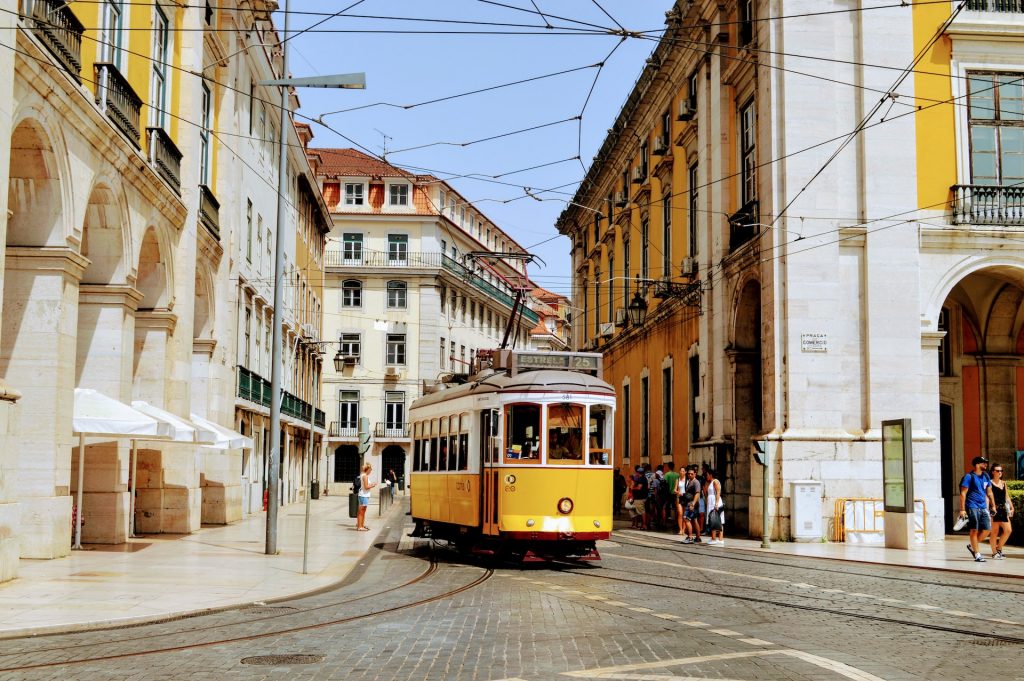Brazilian vs Portugal Portuguese: Are They Really That Different?
4 min read
Portuguese is the sixth most spoken language in the world, with over 250 million speakers. It is the official language of Portugal, Brazil, Cape Verde, Guinea-Bissau, Angola, Mozambique, and São Tomé and Príncipe. Portuguese is also a co-official language of East Timor, Equatorial Guinea, and Macau.
How Brazilian and Portuguese differ: a side-by-side comparison
Brazilian Portuguese and European Portuguese differ in many ways. The most obvious difference is the accent, but there are also differences in grammar, vocabulary, and spelling.
Here are some of the main ways in which Brazilian and Portuguese differ:
Accent: Brazilian Portuguese has a very different accent from European Portuguese. It is often described as being more musical, with a lot of emphasis on vowel sounds.
Grammar: There are some differences in grammar between Brazilian and European Portuguese. For example, in Brazil, the present tense is used more often than the past tense, and there are some different verb conjugations.
Vocabulary: There are also some differences in vocabulary between Brazilian and European Portuguese. For example, in Brazil, the word for “car” is “carro”, while in Portugal it is “automóvel”.
Spelling: There are also some differences in spelling between Brazilian and European Portuguese. For example, in Brazil, the letter “c” is always pronounced as a “s” sound, while in Portugal it can be pronounced as either a “s” or a “k” sound.
These are just some of the main ways in which the Brazilian and Portuguese differ. There are many other smaller differences between the two varieties of Portuguese.
The major differences between Brazilian and European Portuguese
There are a few major differences between Brazilian Portuguese and European Portuguese. The most notable difference is in the pronunciation of certain words. In addition, there are some differences in grammar and vocabulary usage.
One of the biggest differences between the two types of portuguese translation service is in the way certain words are pronounced. For example, in European Portuguese, the word “comida” (food) is pronounced more like “koh-mee-dah”, while in Brazilian Portuguese it would be closer to “koh-mee-jah”. There are also some differences in the way vowel sounds are pronounced. In general, Brazilian Portuguese has a more lyrical sound, while European Portuguese sounds more staccato.
Another difference between Brazilian and European Portuguese is in grammar. For example, in European Portuguese, the plural of “o” (the) is “os”, while in Brazil it would be “as”. There are also some differences in vocabulary usage. For instance, in Europe they say “anel” (ring) while in Brazil they would say “brinco” (earring).
Despite these differences, both Brazilian and European Portuguese are mutually intelligible. That means that someone who speaks one type of Portuguese can generally understand someone speaking the other. However, there may be some confusion when it comes to vocabulary or pronunciation.
Why learning Brazilian Portuguese can be advantageous
There are many reasons why learning Brazilian Portuguese can be advantageous. For starters, Portuguese is the fifth most spoken language in the world and is official in nine countries. That means there are plenty of people to practice with!
Plus, learning Portuguese can also help you learn other Romance languages more easily since they share a lot of grammar and vocabulary. And if you’re interested in Brazilian culture, learning the language is a great way to immerse yourself in it.
Portuguese also has some unique features that can make it fun and interesting to learn. For example, did you know that there are no gender-specific articles or adjectives in Portuguese? This means that you don’t have to worry about whether a word is masculine or feminine – you can just use the same article for both genders.
Сonclusion
There are some major differences between the Portuguese spoken in Portugal and the Portuguese spoken in Brazil. The most noticeable difference is in the accent. Brazilian Portuguese has a sing-songy intonation, while European Portuguese sounds more clipped and nasal.
Another big difference is in vocabulary. Some words are completely different, while others just have different meanings. For example, in Portugal, the word “carro” means “car”, but in Brazil it means “cart”. Similarly, the word “computador” means “computer” in Portugal, but “calculator” in Brazil.
Brazilian Portuguese also has a lot of influence from indigenous languages and African languages, while European Portuguese has been influenced by French and Italian. This can be seen in the different spellings of words. In Brazil, the letter “j” is always pronounced like an “h”, while in Portugal it is always pronounced like a “j”.
One final difference is in the way that verbs are conjugated. In European Portuguese, the verb ending changes depending on who is doing the action (I, you, he/she, etc.), but in Brazilian Portuguese, the verb ending stays the same regardless of who is doing the action.



